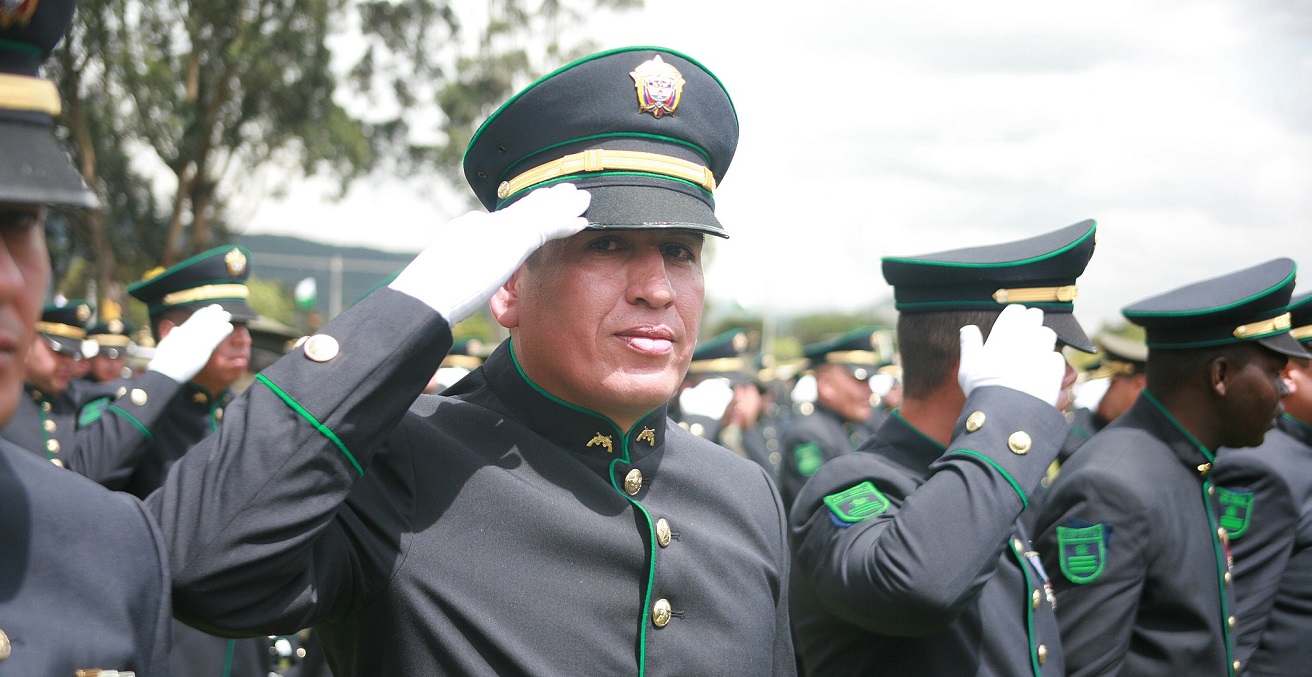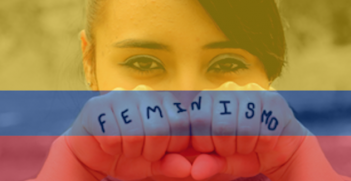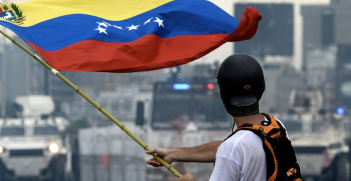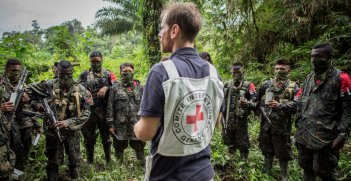COVID-19 and Crimes Against the Poor in Colombia

It took the recent murder of Javier Ordoñez by the Colombian police to generate the international attention that countless massacres in the country throughout 2020 have demanded. This renewed attention must help ensure full political commitment to the 2016 peace agreement.
On 9 September 2020, on the streets of Bogotá, Javier Ordoñez was murdered by Colombian police for violating social distancing rules. The murder and the deadly protests that erupted in its wake across Bogotá and elsewhere in Colombia are reminiscent of the murder of George Floyd in the US on 25 May 2020 during a police arrest and the subsequent protests that reverberated around the world. Ordoñez was held down and repeatedly tasered by police, while begging them to stop and saying “I am choking.” This seems chillingly similar to the murder of Floyd, who told the police more than 20 times “I can’t breathe” while an officer knelt on his neck. Ordoñez died a short time later in police custody.
State-sanctioned violence against the poor
Like Floyd, the murder of Ordoñez also took place in the context of longstanding systematic and structural violence against marginalised groups. The increasingly securitised and heavy-handed responses of the state to COVID-19, such as in Colombia and elsewhere, provides a smokescreen for the continuation of historical state-sanctioned violence and injustices against civilians. Such violence has often been targeted at the poor and historically marginalised groups, such as indigenous communities and Afro-Colombians in Colombia.
Ordoñez was an aeronautical engineer, making his living as a taxi driver and about to graduate from law school. Ordoñez’s middle class status and the location of his murder – the capital city, which had escaped much of the violence that had characterised the conflict and the so-called post-conflict period – seem to have contributed to the amount of attention his murder garnered. Previous cases of deadly violence by the police and non-state armed groups against those who allegedly contravened social distancing rules have been largely ignored.
Ordoñez’s murder appeared to be the tipping point for thousands of impoverished Colombian’s who were hard hit by COVID-19 restrictions and long-standing exposure to police brutality and the violence of the state. His arrest and most of the subsequent protests occurred in Engativá, which is a district in the west of the capital city and mostly inhabited by working-class and lower-middle-class people. During the protests that followed Ordoñez’s murder, there were reports of police indiscriminately shooting protesters, and over 400 were injured – 66 people had gunshot wounds – by the following day. By 15 September, 13 people had been killed in the protests, reportedly students and young working class people.
Protests also erupted in Soacha, a neighbouring district to Bogotá primarily inhabited by working class people, many of whom are historically displaced from rural areas and have been the target of much police violence over recent years. In 2008, 16 young men and boys were kidnapped from Soacha and subsequently found murdered thousands of kilometres away. This crime eventually led to the uncovering of the false positives scandal. This scandal occurred primarily between 2002 and 2008 and involved the arbitrary execution of more than 3,000 civilians by the Colombian Army, sometimes in collaboration with illegal armed groups, with victims posthumously dressed as armed insurgents and presented as having been killed lawfully in combat. Victims were primarily young, poor men, lured with the promise of a paid job, often taken hundreds of kilometres away and then murdered. The practice was to help present the state as winning the fight against insurgents and was spurred on by state policies that provided bonuses for every combatant killed. As a former lieutenant in the Colombian Army noted, “the war is measured in litres of blood.”
Disturbingly similar to the extrajudicial killings of the false positives scandal, there have been reports that arrests such as Ordoñez’s are often motivated by rewards generated as part of alleged quota systems to impose fines. According to some witnesses, Ordoñez’s last words were, “Give me the summons [fine].”
State-sanctioned violence against marginalised groups has been a prevailing occurrence in Colombia. State-sanctioned violence is either violence directly perpetrated by agents of the state or state agencies’ comprehensive failure to protect people from violence of armed groups. Those particularly at risk are the poor, indigenous, and Afro-Colombian people, as well as those who attempt to shed light on the violence and injustices, including human rights defenders and social leaders. Violence previously justified on the basis of protecting the Colombian “good people” from insurgent guerrillas is now legitimised as acts which protect the nation against the threat of COVID-19.
The fundamental process behind this violence is the historical “othering” of the poor, by which those from socio-economically disadvantaged backgrounds are cast as morally inferior, deserving of their poverty, and “not good people” – gente de bien is the common Colombian expression. This othering process, along with the deepening inequality that violently extractive neoliberalism has wrought in Colombia over the last thirty years, can push the socio-economically marginalised to the furthest edges of society, into petty theft, coca farming, guerrilla groups, and criminal gangs. This provides further justification for violent crackdowns by the militarised and state-based security apparatuses, with those responsible enjoying relative impunity because the victims of such violence are framed as deviant, disposable, and undeserving of justice, or even life itself.
In 2016, Colombia formally ended 52 years of armed conflict with Fuerzas Armadas Revolucionarias de Colombia-Ejército del Pueblo (FARC-EP, in English – Revolutionary Armed Forces of Colombia-People’s Army), but this peace agreement has not stopped the horrific violence against the poor, which has increased under the cover of COVID-19. Non-state armed groups, for instance, are reportedly responsible for over 30 murders of people not complying with isolation rules, referred to by some local media outlets as “COVID death squads.” Moreover, in just this year alone, there have been up to 56 massacres. In the month leading up to Ordoñez’s murder alone, there were three separate massacres on 7 August, five boys were killed in a sugar cane field on 11 August in Cali, eight young people were shot dead in their house by an armed group on 16 August, six people were found murdered in Cauca woodland on 21 August, on 28 August, a hooded gunmen killed three people near the town of Andes, and on 5 September, four people were found shot dead in Buesaco. The government has referred to these massacres as “collective homicides,” which undermines the legal and political dimension of the killings.
This level of obscene violence, which has primarily been directed at poor, rural, indigenous, and Afro-Colombian people, as well as human rights defenders and social leaders, makes a mockery of the so-called peace process. Civilians are caught between armed groups jostling for power after the demobilisation of the majority of FARC members and the repressive violence of the Colombian state which has rarely prioritised their protection.
It took the murder of Ordoñez and the subsequent deadly protests to generate the international attention that recent massacres have demanded. For too long, countless deaths of poor, dispossessed, and marginalised people have been ignored or justified. Now, the eyes of the international community are – and should remain – on Colombia as its people are saying enough is enough, despite the risk even just speaking out entails. This renewed attention must help ensure full political commitment to the 2016 peace agreement.
Dr Elliot Dolan-Evans is a sessional in the Faculty of Arts at Monash University, a non-practicing medical doctor, and a lawyer volunteering in the community.
Dr Eleanor Gordon is a Senior Lecturer in Politics and International Development and Deputy Director of the Master in International Development Practice programme at Monash University.
Gustavo Rojas-Páez is a Lecturer in Legal Theory at the School of Law Universidad Libre, Colombia.
This article is published under a Creative Commons License and may be republished with attribution.





